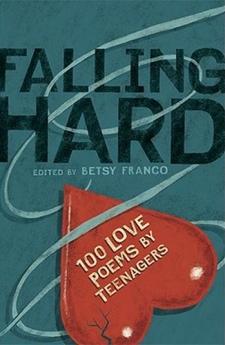For the past three years I’ve been involved in a program in Toronto called SWAT, which is Students, Writers and Teachers. The program, organized by literary magazine Descant, through an initiative called Now Hear This!, sends writers into high schools, Catholic high schools, in the GTA to work with teachers to bring unique creative writing programs to English classes. As part of SWAT, I’ve been all the way to the east end and all up in the west, and this is what I have to say about teaching high school students: they are very, very loud.
If you are one of my students and you are reading this right now, I’m totally serious about how loud you are. It’s mind piercing. Sometimes I love it and sometimes it makes me feel for that scene in Children of a Lesser God when Marlee Matlin and what’s his name are sinking into the deeps of the pool. Not that I want to be with what’s his name, I just really like the idea of that kind of complete underwater silence when I’m surrounded by a room full of screaming girls in kilts. You don’t even know you’re screaming half the time, that’s almost the worst part.
The thing about female high school students I find fascinating is how much they LOVE love poetry. They just totally dig it. This is good in that it’s good to find something that kids will read and not hate you for bringing into their classroom. It’s bad because, for the most part, I HATE love poetry. I’m all like, ew. You know? Ugh? LOVE POETRY. I mean, seriously, I’m not a huge fan of poetry over all, although I have my favourites like Toronto poets Zoe Whittall, Motion, Ken Babstock, and newly emigrated Billeh Nickerson. Other than this select group, though, I’m a bit “no way” if you want me to read your love poem or your favourite love poem. I got enough of that as a burgeoning writer in Montreal surrounded by sensitive newly out lesbians, you know?
So here’s something else interesting about the intersection of high school students, their love of love poetry, and me and my hatred of it. The first year I taught poetry, I tried really hard to find what I thought might be representative of the best love poetry. I brought in some spoken word stuff and some selections from the varied cast of events like Toronto’s Scream in High Park and I think one Shakespeare classic. And what do you think happened?
They HATED it.
HATED
IT.
The only thing they liked was a poem I got from Teen Angst: A Celebration of Really Bad Poetry. Teen Angst, edited by Sara Bynoe, is a collection of teen poetry dug up out of diaries and notebooks by scoffish adults. One of the chapter headings is Life Sucks and I Want to Die. I brought a poem from this collection as an example of bad love poetry. Whatever. They loved it. They thought it was true and honest and all the other stuff, with its metaphors and fabulous adjectives, was full of crap. Because no one talks like that Miss, they told me. These kids haven’t spent much time with sensitive newly out lesbians who want to be poets for a living, so they don’t really know the whole story.
So after being burned this one time it occurred to me that maybe what these kids wanted out of a class on love poetry wasn’t a lesson in metaphor. They wanted something they could relate to.
Fine.
This year, when I started putting together my curriculum, I lucked out and I found a new book of teen love poetry I’m using called Falling Hard: 100 Love Poems by Teenagers edited by Betsy Franco. One of the cool things about this book, aside from the fact that it’s also love poetry written by teenagers, is that the teens writing this poetry are straight, bi, gay, lesbian and transgender. So it’s not all boy for girl and girl for boy. Which is cool in a teen love world where almost everything is High School Musical straight. And, get this, the poems, compiled from a diverse range of American high school lit groups, are not half bad. There’s one or two that I even really like!
I wouldn’t necessarily recommend Falling Hard for your bookshelf if you’re not a big fan of love poetry, but it is notable and nice to see a tool out there for people like me that lets you slide a little bit of diverse content into the classroom. Not that any of my students noticed the queer factor, which is interesting. If you’re one of my students and you’re reading this now, what you think about that?

 Why you can trust Xtra
Why you can trust Xtra


